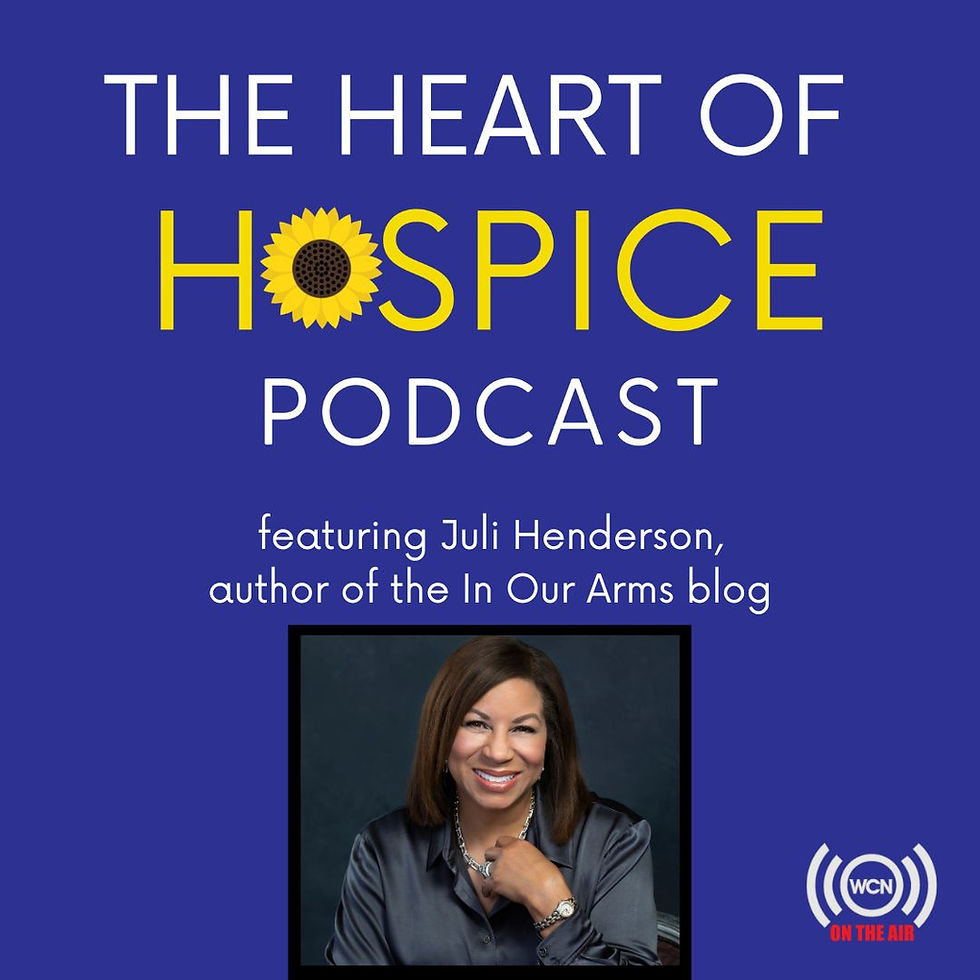Advance Care Planning – Not a One and Done
- May 19, 2019
- 2 min read
The best way to have your wishes honored at the end of your life is to tell someone what you want – your doctor, your family, a healthcare proxy or medical power of attorney. It’s going to cost you some time and maybe some money if you’re using an attorney.
There’s another cost that’s associated with those end of life conversations. It’s a little bit of heartache. Maybe just imagining the death of someone we love is the origin of grief.
Photo by Jerry Fenter, The Heart of Hospice
Discussing death is enough to create sadness, to generate a sense of loss so strong that most people don’t talk about it. Certainly not the death of someone they love. As a result, our advance care planning becomes a “one and done” event.
A single conversation. A single sentence. “I don’t want to be kept alive on machines.” A single document that covers basics like ventilator support for breathing, or receiving blood products.
It’s not enough. Advance care planning is not a single conversation. How could one discussion begin to cover the many facets of how we die?
So many things to consider about the end of our lives! The good part is you get to choose what’s important to you. Yes, you still need to cover the basics of life support and CPR. Choose what’s important to you and make sure you communicate that to someone you know will listen. Your healthcare proxy or medical power of attorney should be prepared to honor your wishes – even if he doesn’t fully agree with them. Your end of life choices are simply that – yours.
Talk about where you want to receive your care. Discuss who would be able and willing to be your caregiver. What if you no longer know your family, or your care needs are complex? Would you prefer dying in a hospital? Maybe you want to see everybody you love in your last days. Maybe you prefer to be quiet and die in solitude. How about your finances? Paid caregivers can be a big cost over enough time. What if you wander or become agitated, and it’s not safe for you to live in your home?
And then after your death. Funeral arrangements – green burial or traditional? You could choose to be memorialized in a cemetery, or become a part of nature in a very personal way.
There are great tools you can use to get those conversations going. Check out The Conversation Project, Five Wishes, Common Practice, Seven Ponds, or My Life & Wishes.
Have several conversations – there’s too much information for one discussion. Asking your decision maker to listen to all you need to share is like asking them to drink from a firehose – an overwhelming flood that’s hard to take. Take your time and be organized. Sign the legal documents that are needed, then talk about all the details.
I know it sounds like a lot of work. Advance care planning is a big job – if you do it right. But it’s worth doing.
You’ve lived your life like no one else. Design the end of your life to be just as original.




Comments